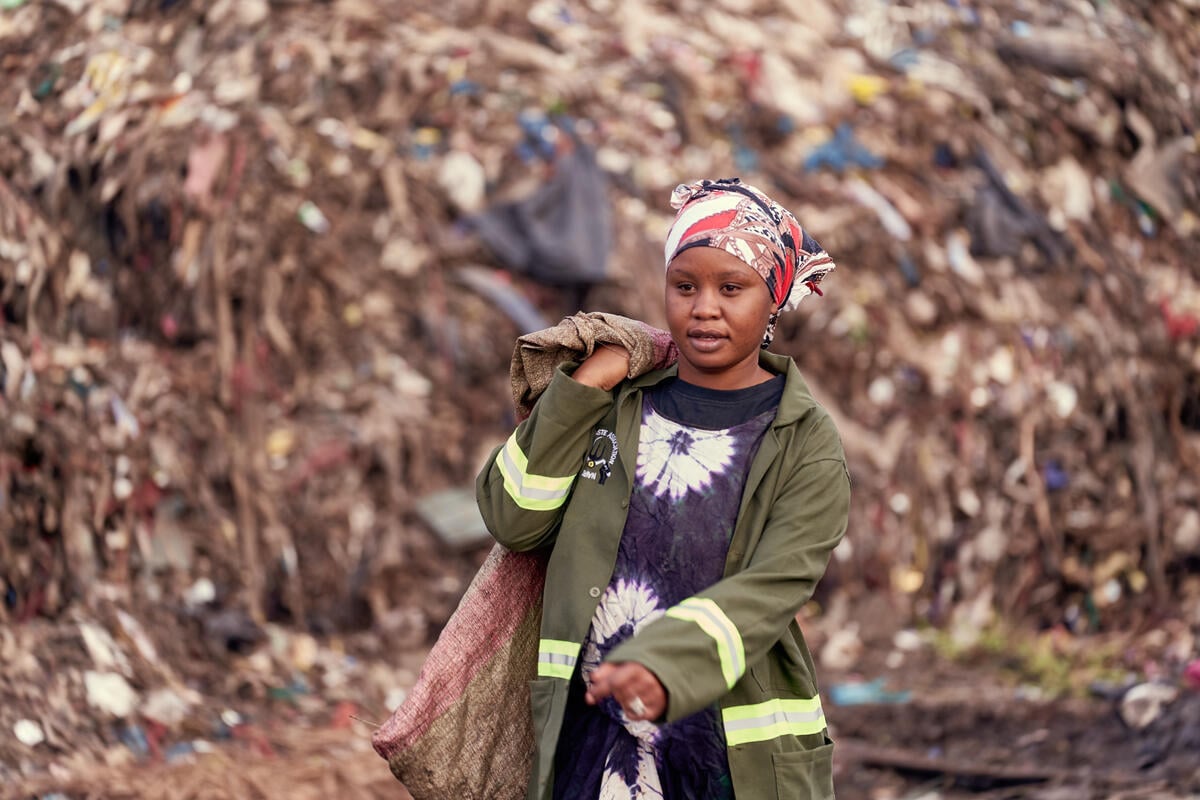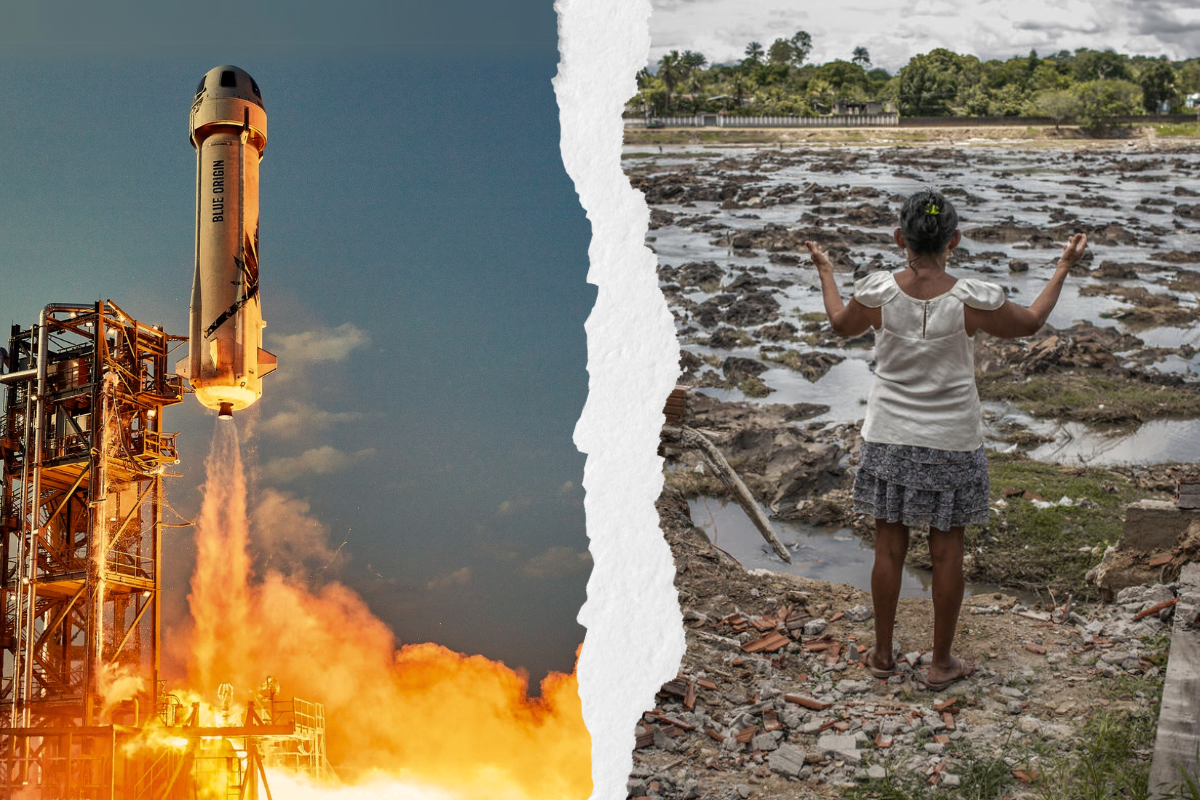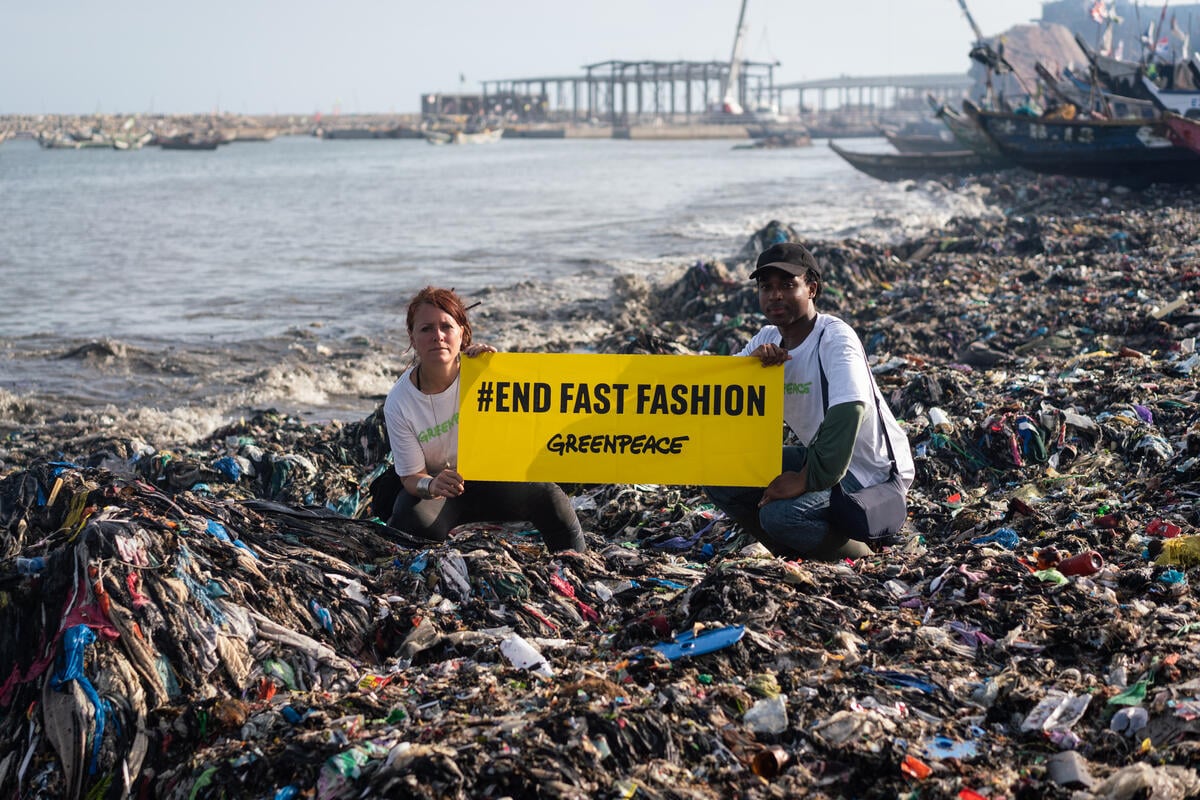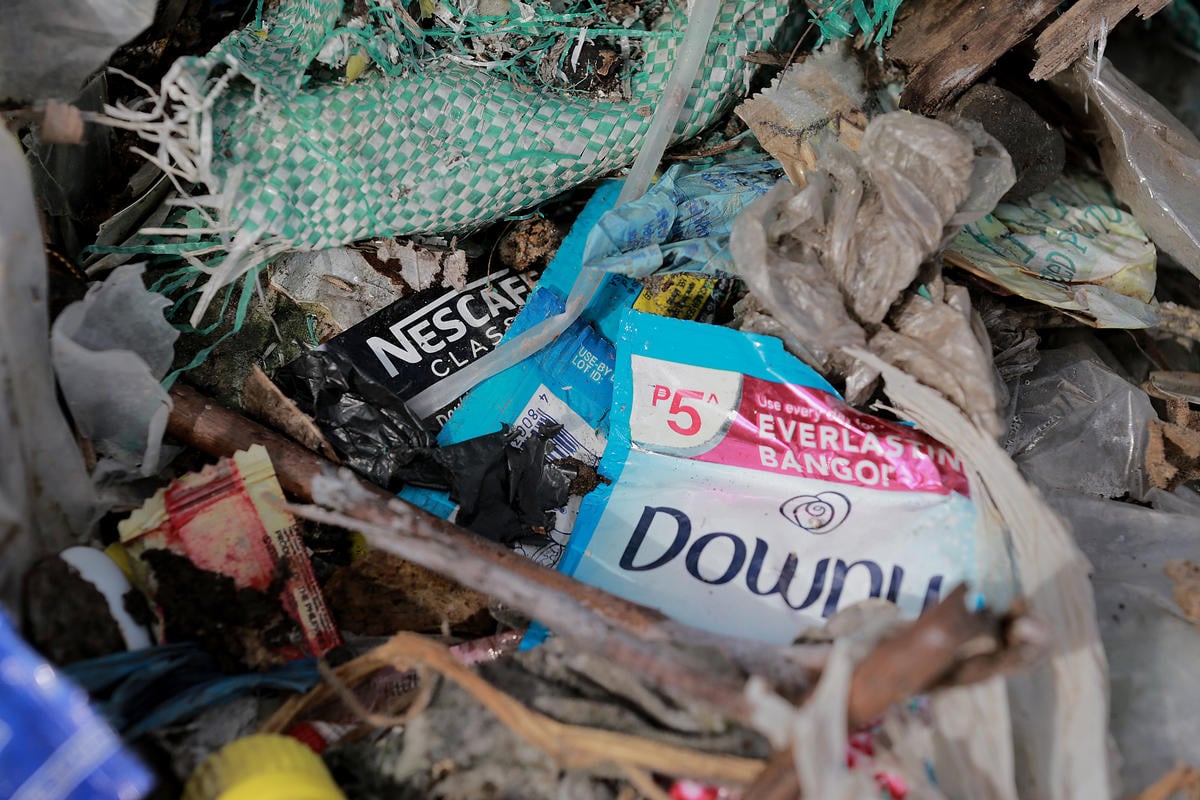
Discarded packaging from Nestlé and Proctor & Gamble are seen at a pile of trash at a dumpsite in Dumaguete City, Philippines. Nestlé and Unilever were found to be the two worst plastic polluters in the Philippines in a series of audits detailed in a report published today by GAIA.
The sun sets behind the mountains of Dumaguete City, Philippines. The landscape here is beautiful, but it has become a dumping ground for the world’s plastic pollution.
It’s one thing to talk about the plastics pollution crisis, but witnessing it first-hand, standing on it, smelling it, and talking to the communities that have to live next to it, is indescribable.
Southeast Asia is often blamed for the global plastic pollution problem. But these photos expose a hidden truth: the plastic waste that ends up here has primarily been produced in places like Europe and in North America.
In a report published today by the Global Alliance for Incinerator Alternatives (GAIA), Nestlé and Unilever were found to be the top sources of plastic pollution in waste audits done in the Philippines. These and other big corporations are causing communities in countries like the Philippines to be used as a dumping ground through the global waste trade.
Corporations have created a #plasticmonster and they need to take responsibility for it. We need these corporations to take bold and immediate action to phase out single-use plastics for the sake of impacted communities.
While corporations talk, heroes like Froilan Grate and Merci Ferrer are working every day to tackle the plastic pollution crisis with real solutions in the Philippines. I am grateful to have the opportunity to work alongside them as partners in the #BreakFreeFromPlastic movement.
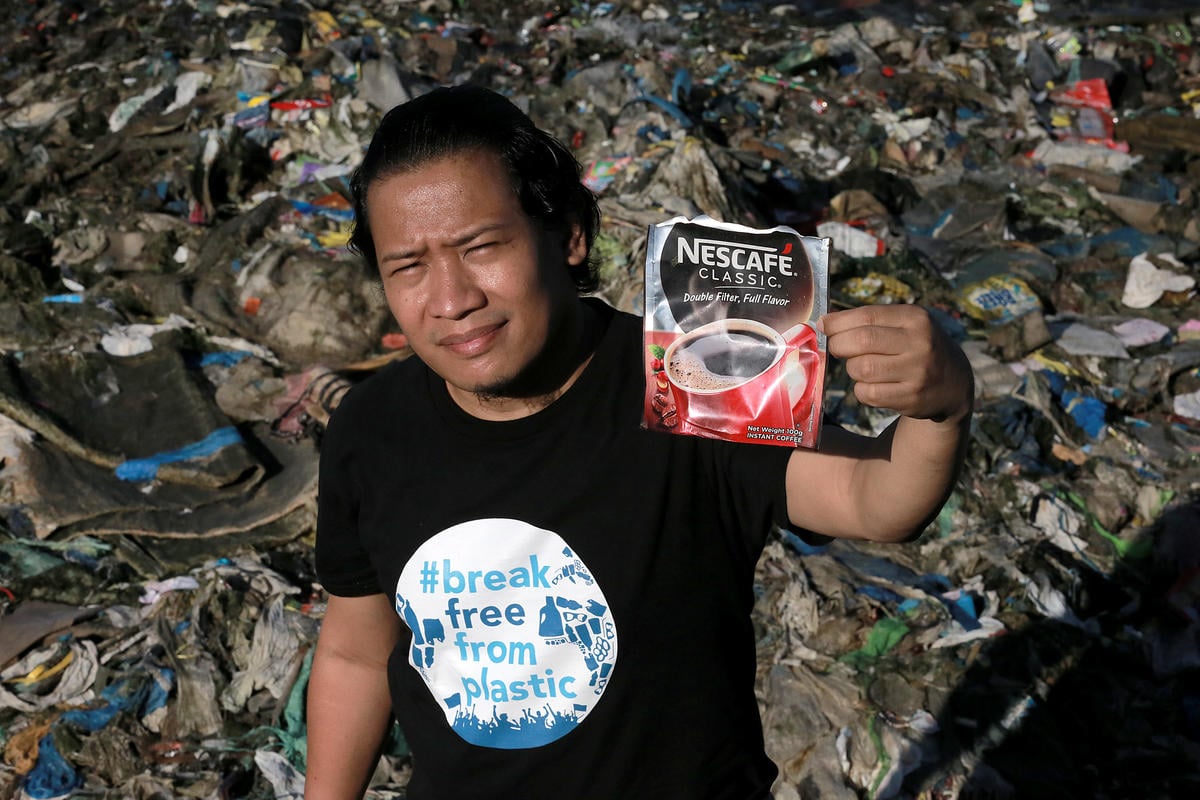
GAIA Philippines Executive Director Froilan Grate shows a discarded pack of a Nestlé product as he stands on a trash-filled shoreline along Manila Bay in Navotas City, Philippines. Nestle was named one of the worst polluters following cleanups and brand audits of plastic waste around the world in 2018.
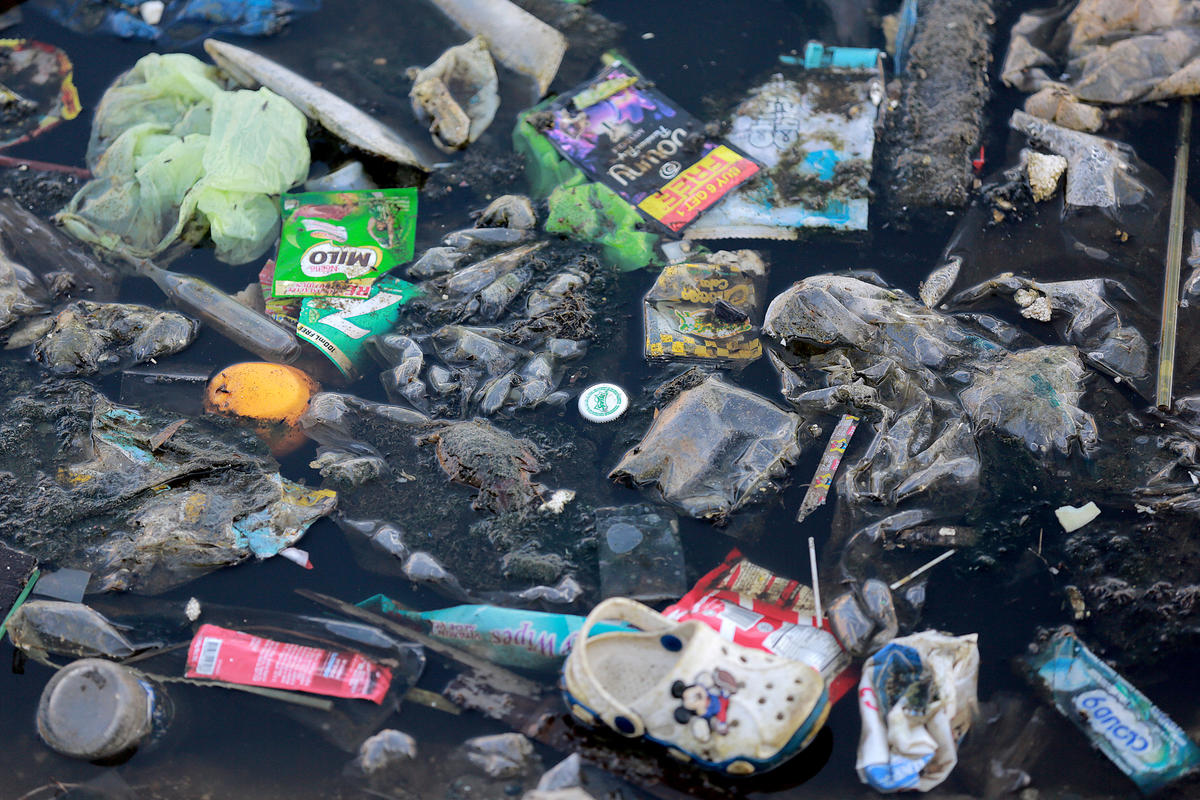
A trash-filled river in Barangay Bagumbayan North in Navotas City, Philippines. Much of the waste polluting the region is discarded plastic packaging from the world’s largest corporations like Nestlé and Unilever.
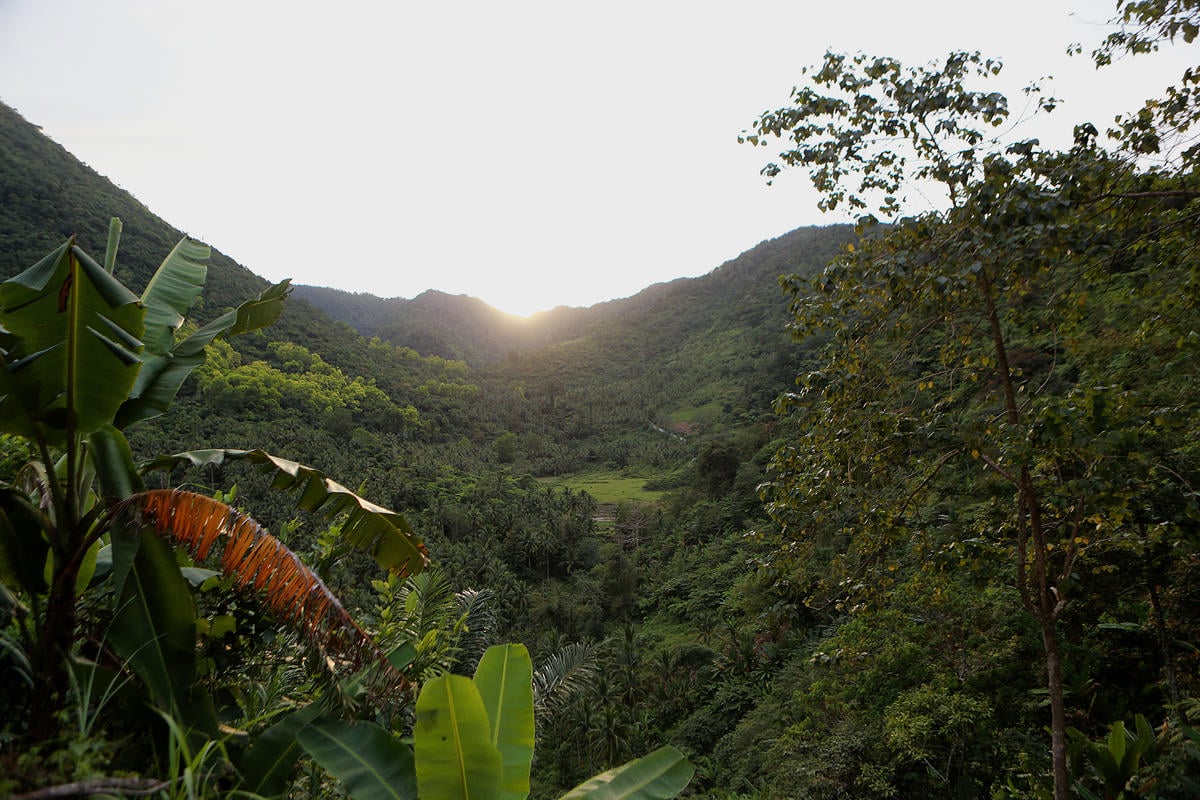
The sun sets behind the mountains of Dumaguete City, Philippines. The otherwise beautiful landscape has become a dumping ground for the world’s plastic pollution.
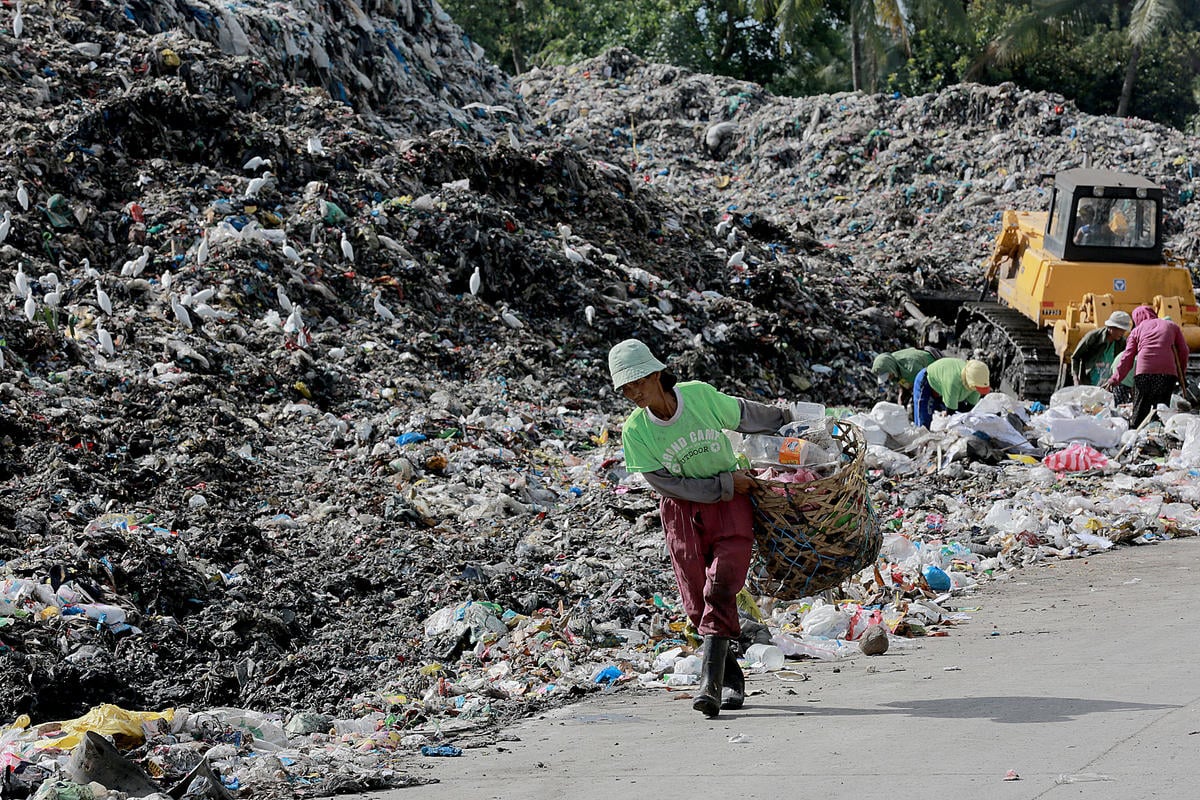
An elderly female waste picker carries a basket full of trash at a dumpsite in Dumaguete City, Philippines. Countries in North America and Europe export plastic waste to various countries in Asia and Africa, offloading their trash problem to other communities.
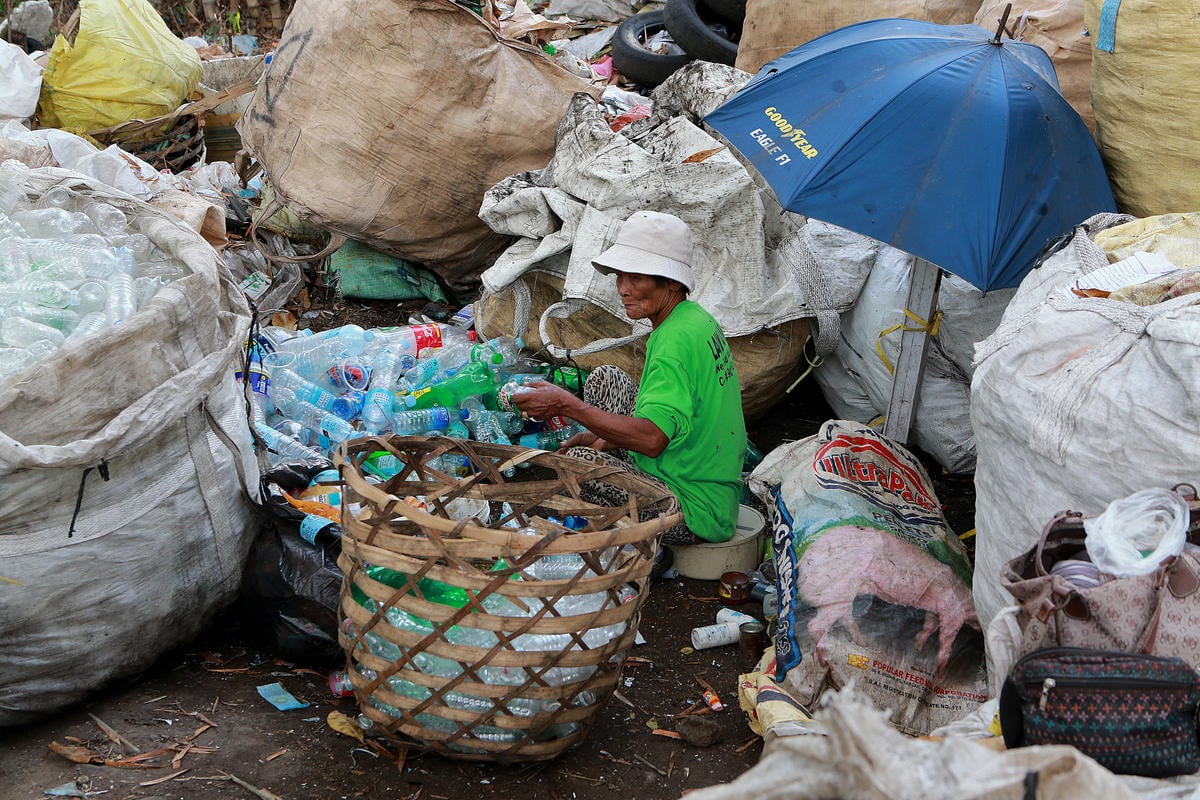
An elderly waste picker collects plastic bottles through trash at a dumpsite in Dumaguete City, Philippines. Despite weak promises to address the plastic pollution crisis, corporations have plans to increase their overall production of plastic.
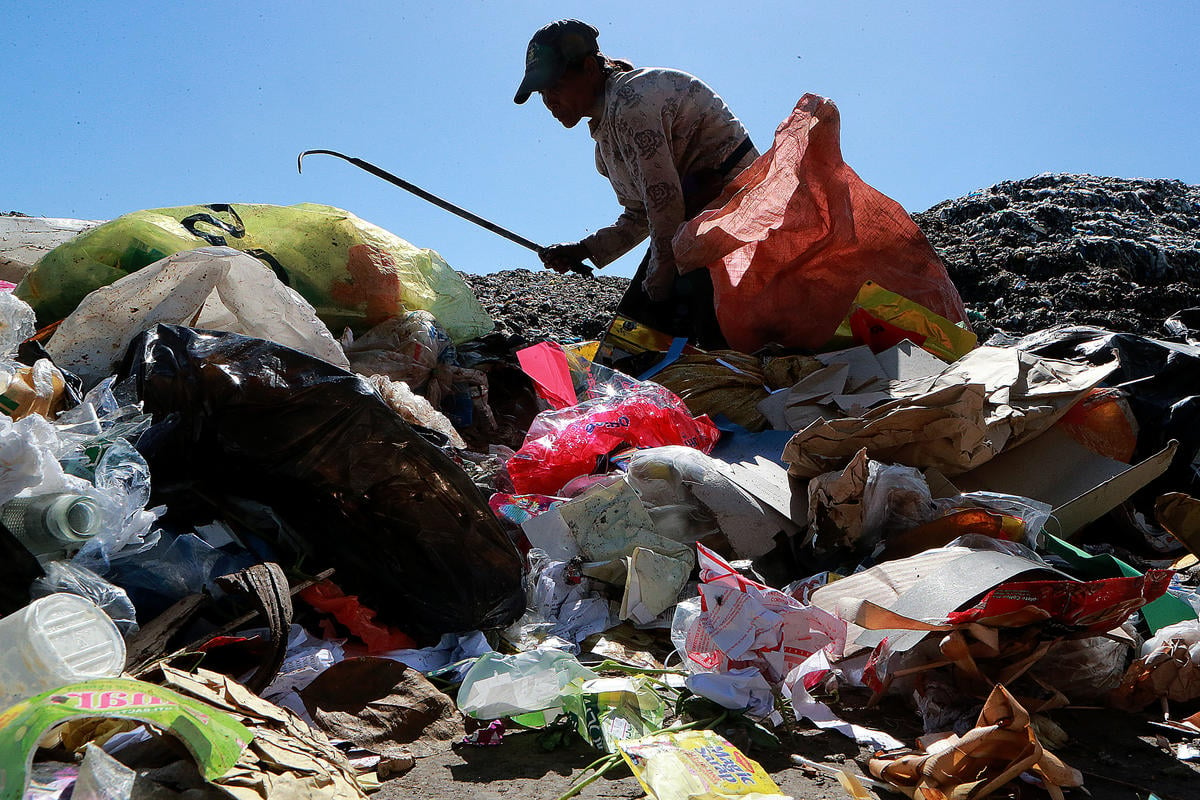
An elderly female waste picker rummages through trash at a dumpsite in Dumaguete City, Philippines. Low-income communities face more health impacts near plastic production sites, have greater exposure to toxins and waste, and bear the brunt of the impacts of improper plastic disposal and incineration.
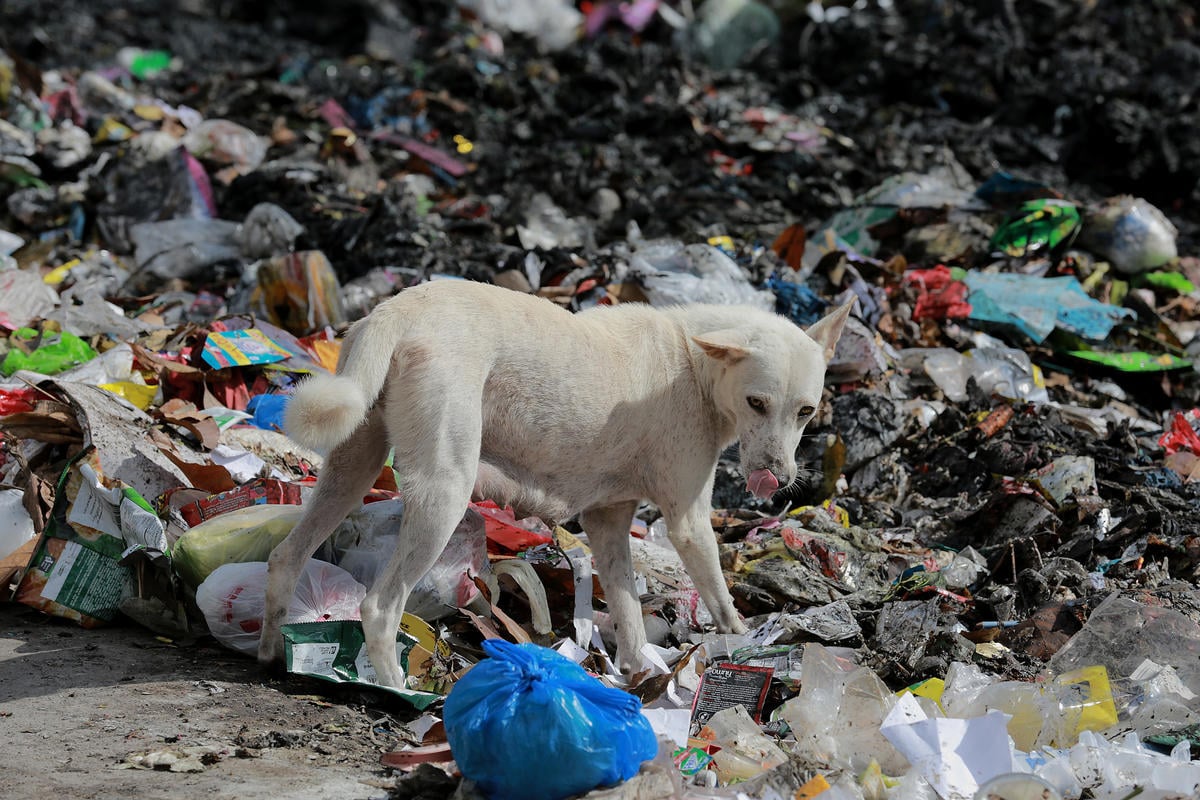
A stray dog rummages through trash at a dumpsite in Dumaguete City, Philippines.
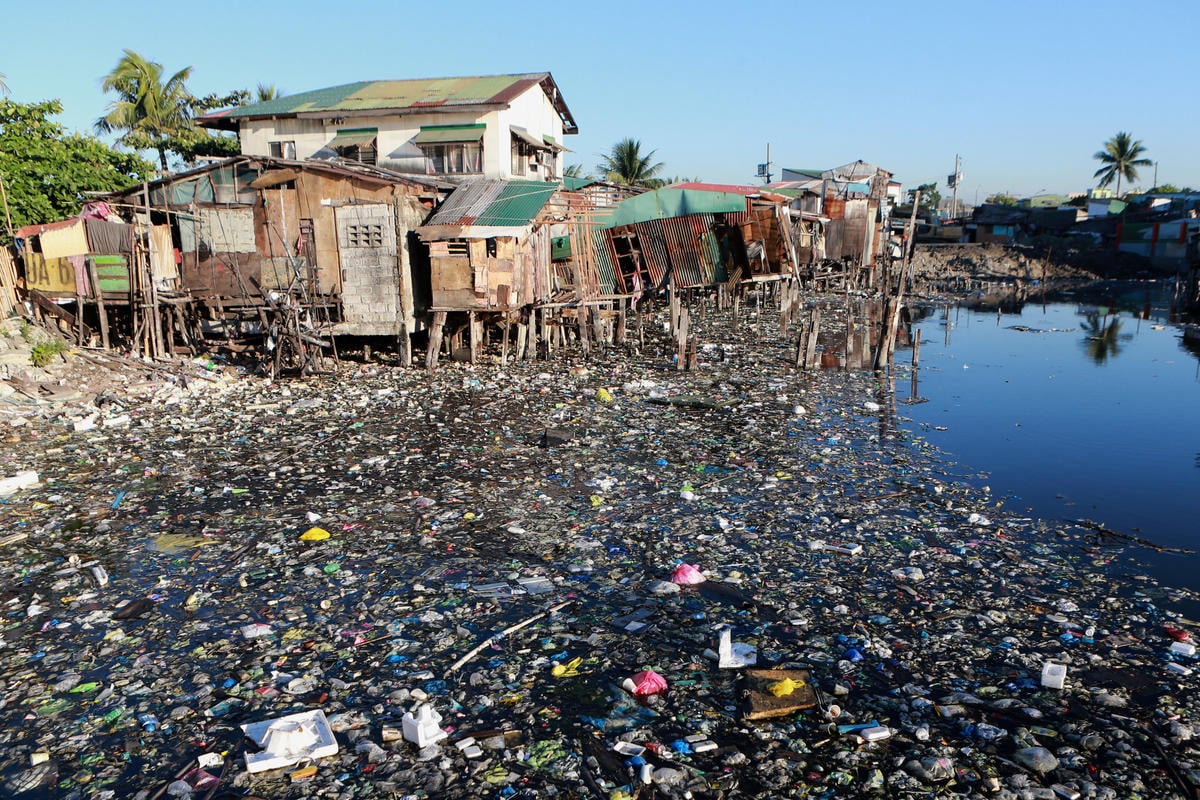
A trash-filled river in Barangay Bagumbayan North in Navotas City, Philippines. People living along rivers and coastlines in China, Indonesia, the Philippines, Thailand, and Vietnam are among the most impacted by plastic pollution.
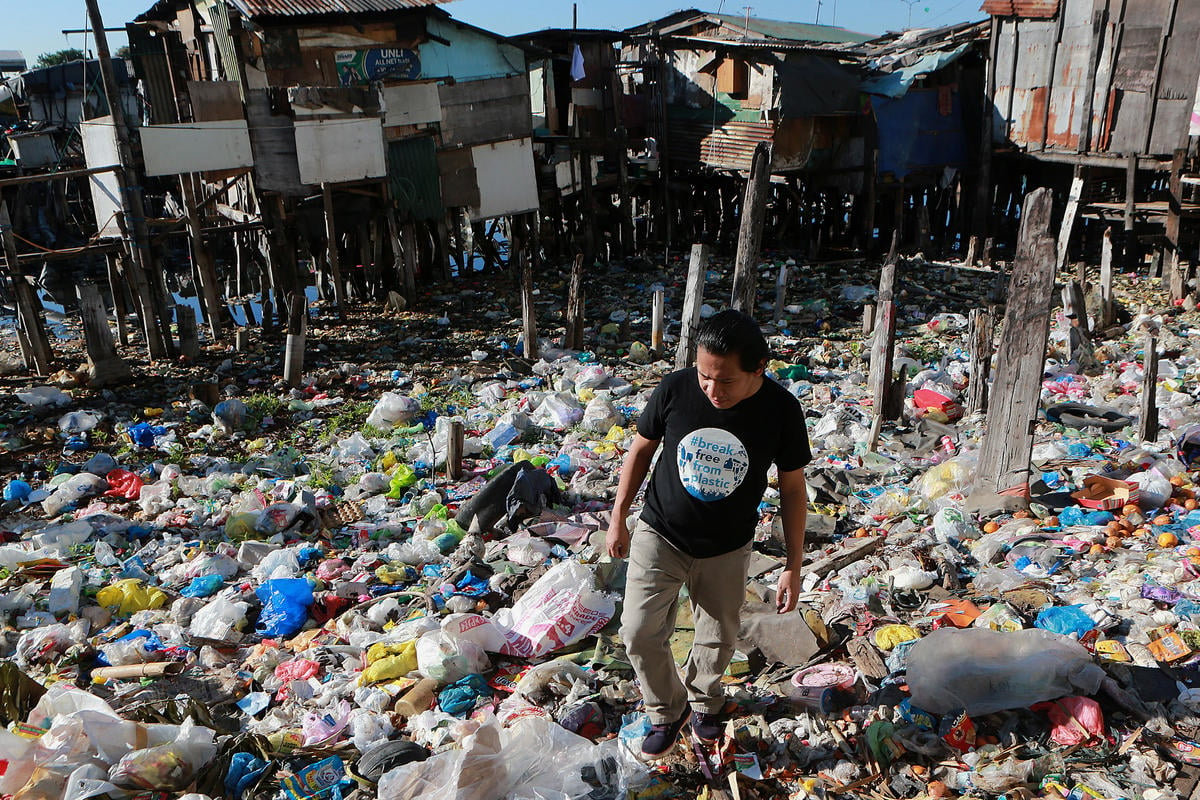
GAIA Philippines Executive Director Froilan Grate walks on a trash-filled river in Barangay Bagumbayan North in Navotas City, Philippines. GAIA works to help communities implement Zero Waste initiatives to help solve the plastic pollution crisis.
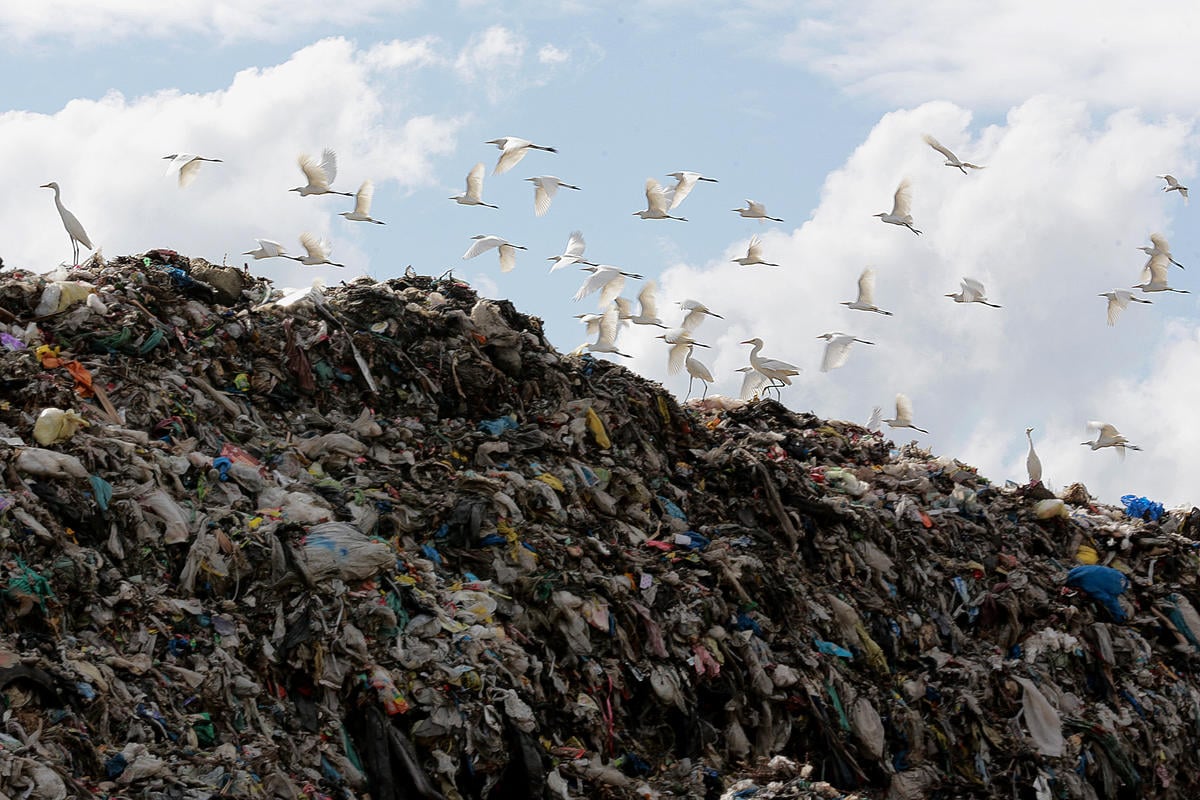
A flock of young egrets fly over the mountain of trash at a dumpsite in Dumaguete City, Philippines. Only 9% of all the plastic produced since 1950 has ever been recycled; most of the rest of it ends up in landfills like this.
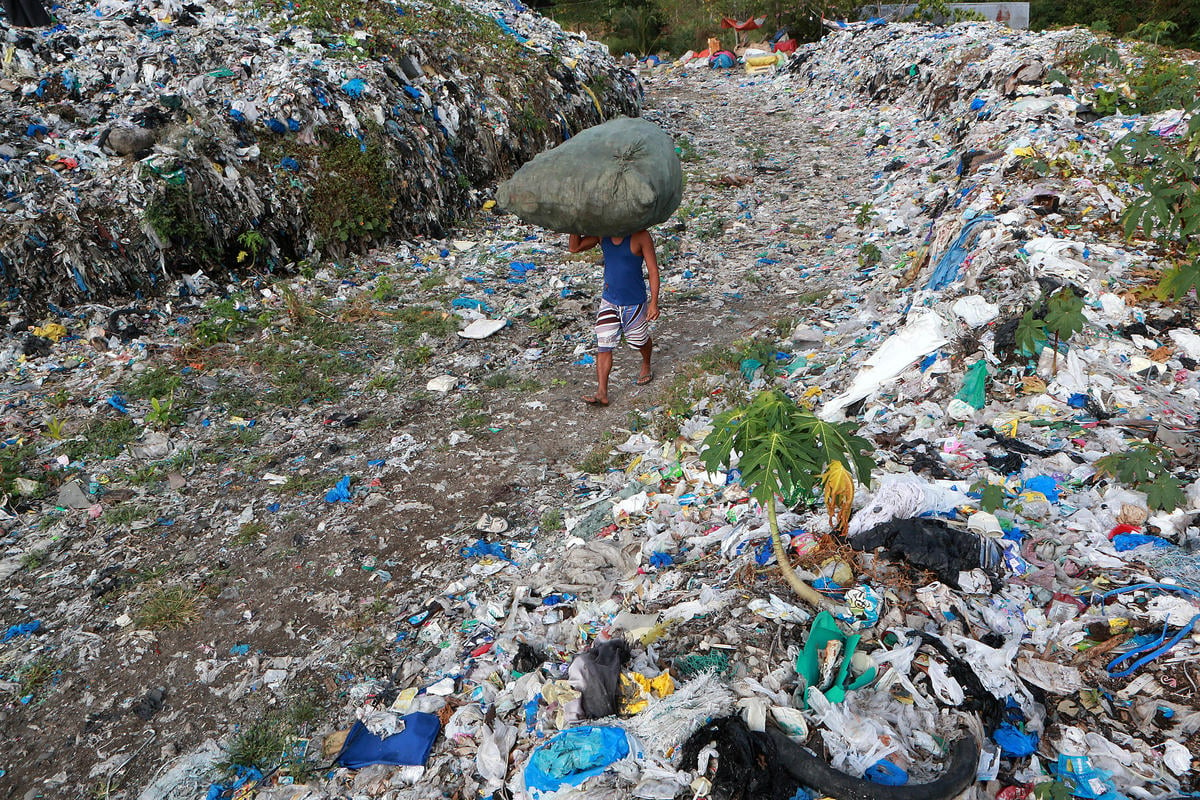
A man carries a large sack of trash over his head at a dumpsite in Dumaguete City, Philippines. Even with plastic pollution reaching crisis levels, plastic producers are set to increase production by an additional 40% over the next decade.
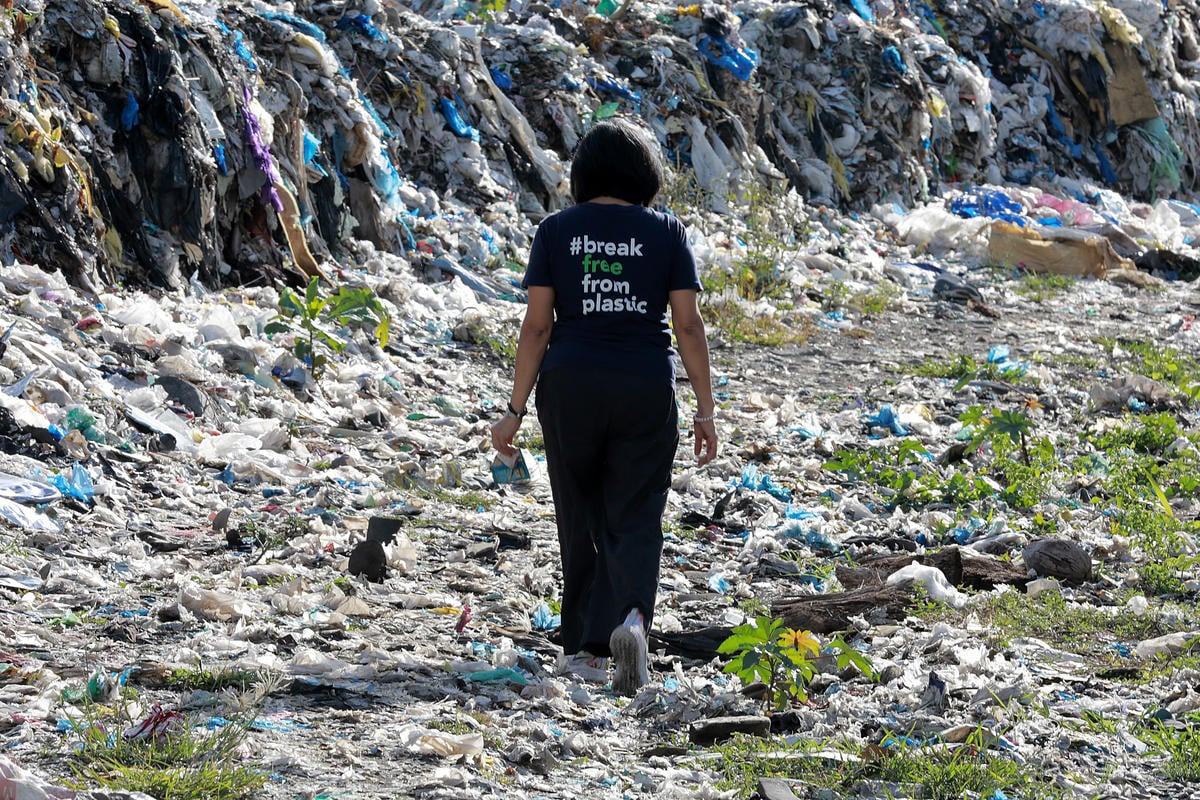
Merci Ferrer walks on a dumpsite in Dumaguete City, Philippines. She is a powerful voice in Break Free From Plastic, a global movement of more than 1,400 organizations working together to stop plastic pollution.
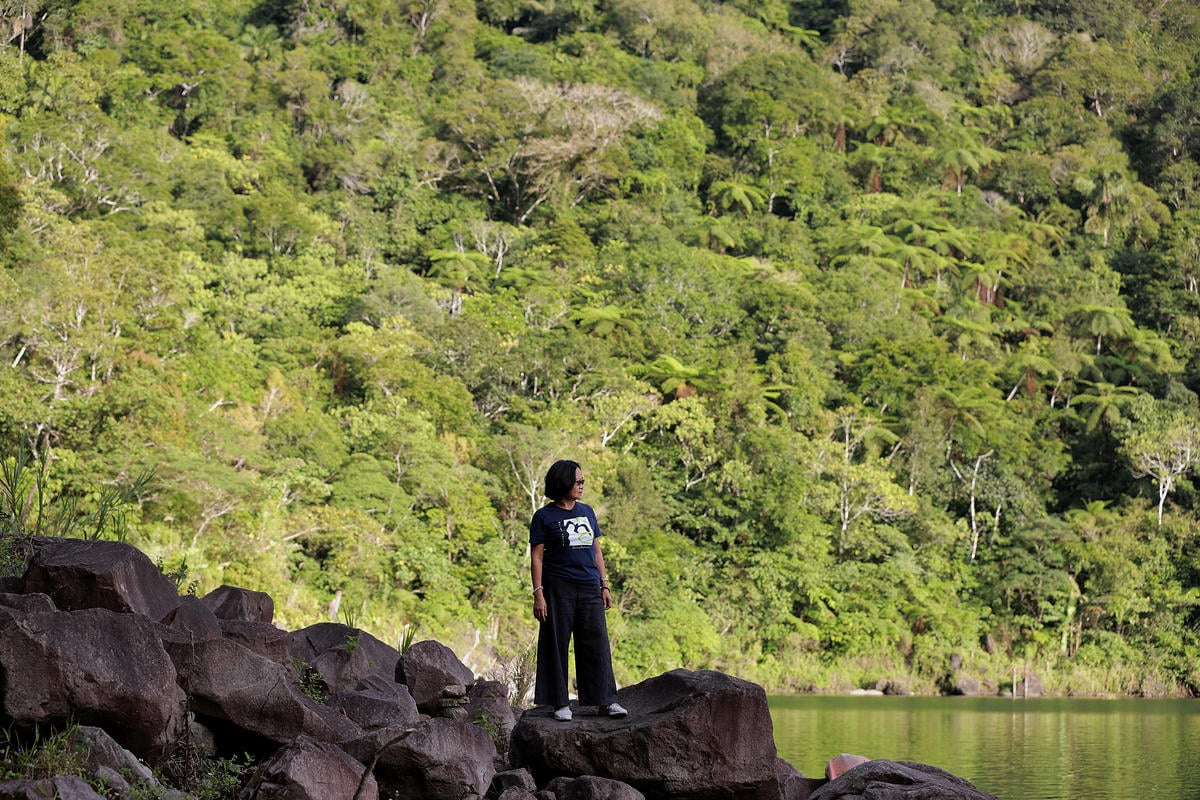
Merci Ferrer stands on rocks at the Balinsasayao twin lakes in Dumaguete City, Philippines. Activists like Ferrer are taking a strong stand against the corporations that are polluting their home countries with plastic.
Capucine Dayen is the Global Communications Lead for the Plastic-Free Future campaign at Greenpeace.
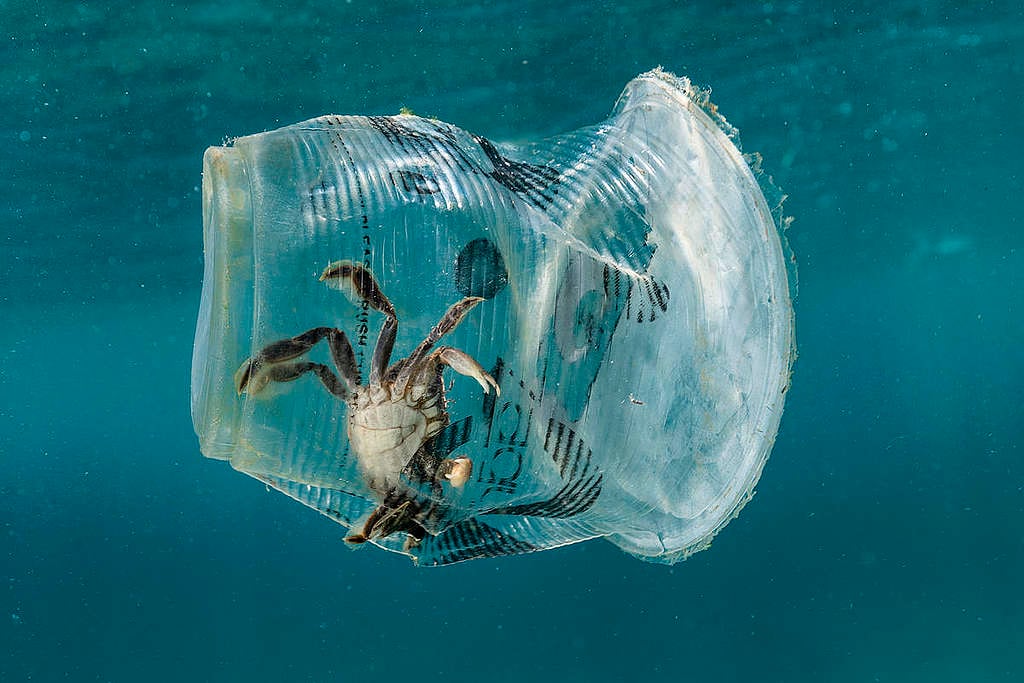
Ask world leaders to support a strong Global Plastic Treaty that addresses the whole life cycle of plastic.
Take action
